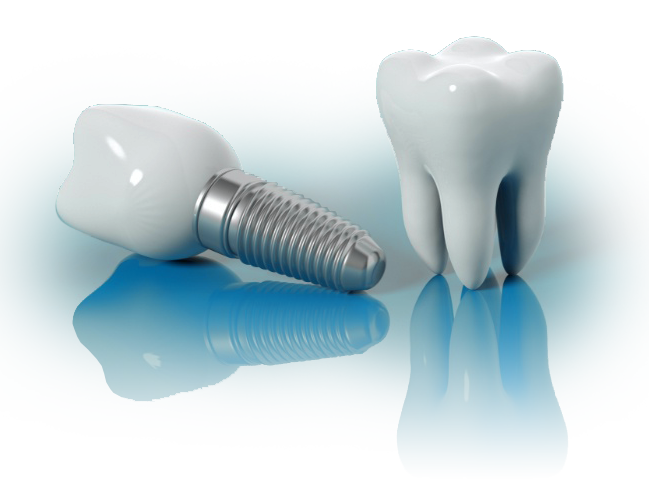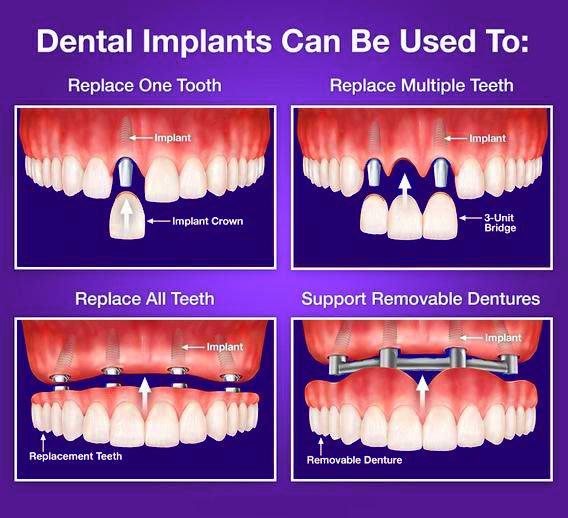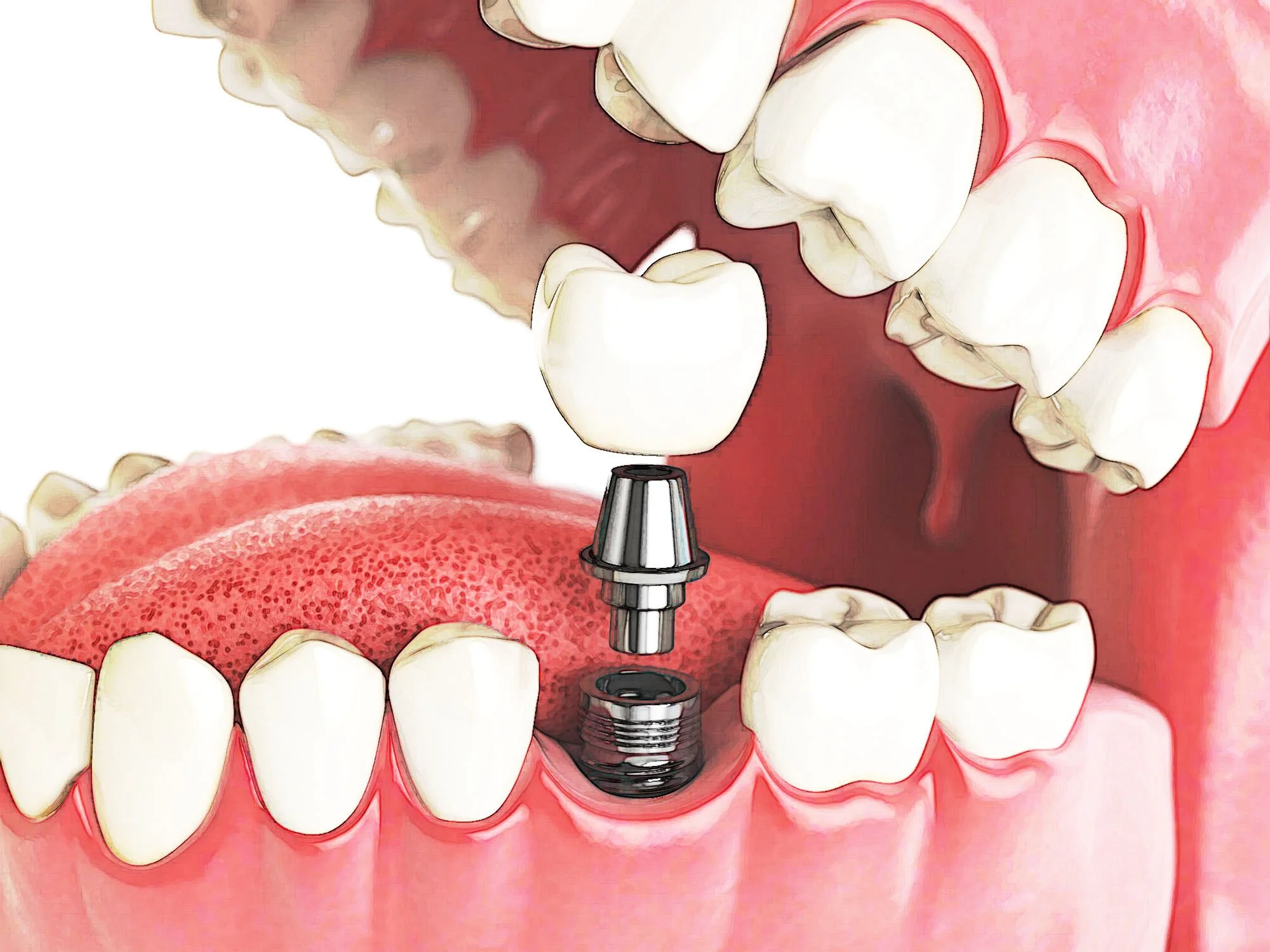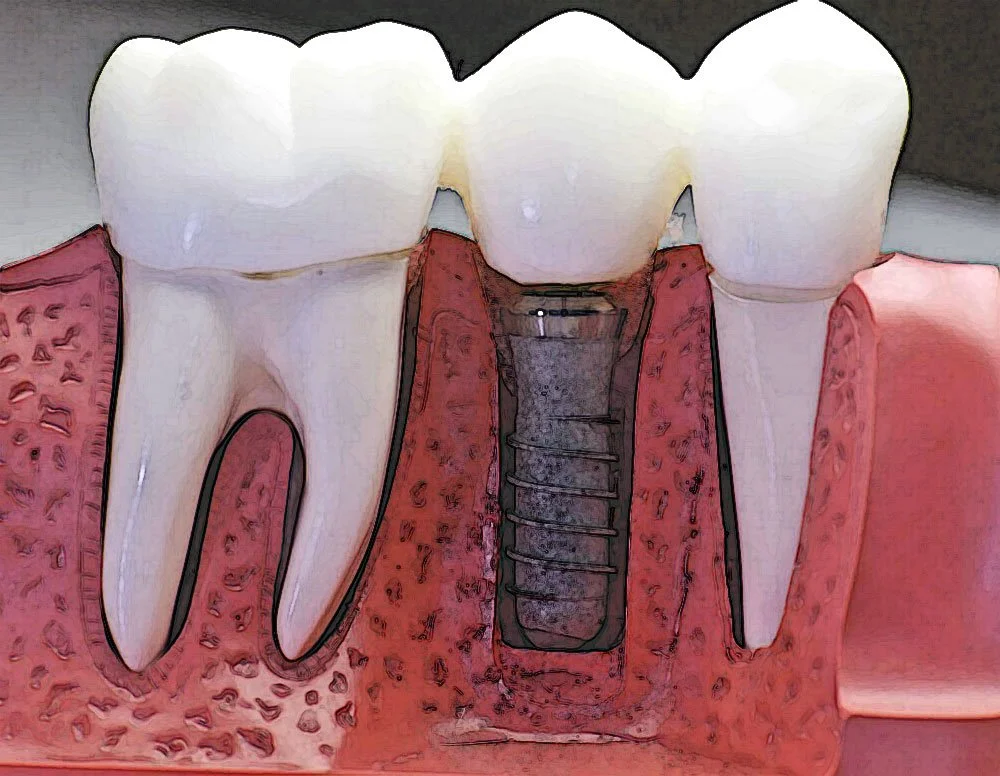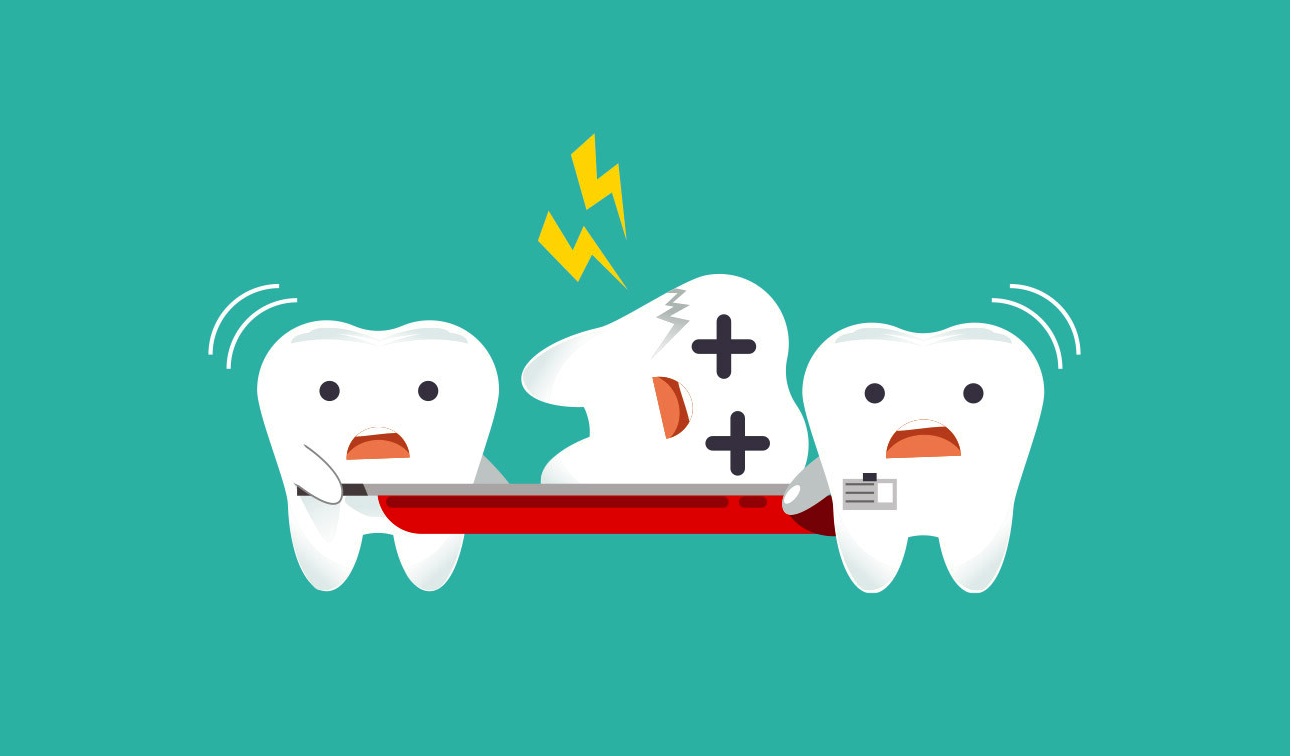For Adults with Missing Teeth
Dental Implants May be a Perfect Solution
Nobody wants to think about losing teeth in adulthood, but this is a fairly common problem for millions of people throughout America. Although there are treatments such as bridges and dentures designed to fill the gaps in a smile, dental implants are a more permanent solution for tooth loss.
If you have a stubborn hole in your smile that you’d like to have filled, keep reading to find out if a dental implant is the right choice for you.
What Are Dental Implants?
Simply put, dental implants are replacement tooth roots that are surgically positioned in the jawbone. For each required implant, a titanium, screw-like post is inserted in the bone to provide a strong foundation for artificial teeth.
Once completed, dental implants are then fitted for custom-made teeth designed to match your natural smile. After an implant has healed and fully fused with the jawbone, patients have the ability to function as they normally would.
Are There Advantages to Having Dental Implants?
Yes!
As dental implants are a permanent solution for tooth loss, they provide a lifetime of use with relatively little to no complications. Outside of cosmetic purposes, dental implants have many other benefits including:
Appearance
Implants are custom-made for your mouth and designed to look and feel like the rest of your natural teeth.
Comfort
Unlike dentures, dental implants are a permanent fixture in your mouth eliminating the need for consistent removal and discomfort.
Speech
If you have a removable dental appliance, particularly one that is ill-fitting, your speech may be difficult to understand. With dental implants, you are able to speak freely without the fear of slippage that causes mumbling and/or slurring.
Functionality
Because dental implants function like your own teeth, it is not difficult to chew or eat the way it can be with partials or dentures.
Durability
With proper care and hygiene, dental implants will last many years, even a lifetime of use whereas removable devices are frequently lost, damaged, or need to be replaced.
Convenience
Rather than mess with dental adhesives, extensive cleaning routines, difficulties with speech and eating, or anything else – dental implants act as the rest of your teeth without the need to be taken out.
Health and Hygiene
Treatments such as tooth-supported bridges require reducing or altering the other teeth nearby. Because dental implants are surgically placed in the jawbone, your other teeth are left intact which improves your long-term oral health. Implants also provide easier access between teeth, reducing your risk of plaque build-up and decay.
Answering Common Questions
Before you can schedule a dental implant procedure, it’s important to consider other factors such as cost, healing time, and eligibility. Let’s take a look at some of the common questions associated with patients considering dental implants.
-
If you are healthy enough to undergo a routine tooth extraction or other oral surgery, you have a good chance at qualifying for a dental implant procedure. In order for dental implants to be properly placed, a patient must be evaluated to confirm their gums and bone are healthy enough to support the implant.
Once the structure of your mouth has been determined to fit the required needs for implant surgery, other health factors such as pre-existing conditions and current oral hygiene habits will need to be considered.
-
Unfortunately, dental implants are rarely covered by insurance as they are typically classified as a cosmetic procedure. However, depending on your insurance plan and the cause of tooth loss, you may be eligible for coverage.
-
Depending on which tooth or teeth need to be replaced, there are several types of dental implants that may be used for your treatment plan.
Endosteal Implants are the most commonly used form of dental implant. These implants are placeholder posts shaped like screws which are put into the jaw where it fuses to the bone to create a stronghold. Once it’s healed, false teeth are fitted onto the post.
Subperiosteal Implants are the second most common style of implant and involve a metal frame to be placed under the gum atop the jawbone. When the gum heals, it secures the frame in place where false teeth can be secured to the poles extended from the gum.
Zygomatic Implants are fairly uncommon, but not unheard of. This type of implant is usually only performed on patients without enough jawbone for an Endosteal implant as it is placed in the patient’s cheekbone instead.
-
Although recovery varies on an individual basis, most patients heal from dental implant procedures within 3-6 months.
-
Depending on where your implant needs to be placed in the jawbone, dental implants typically have a success rate of up to 98%.
-
As with any surgical procedure, there is some pain as you recover, but most patients report having very little discomfort. In many cases, patients have stated that their implant was less painful than a regular tooth extraction.
Are Dental Implants Right for You?
If you are seriously considering dental implants or are simply curious about the procedure itself, talk to us at your next visit! Our care team is dedicated to providing you with the treatment plan that is best suited for you and your smile.
Other Articles You May Enjoy…
What Should I Do If I Lose a Tooth?
Dental disasters happen and this blog covers everything you need to know about saving your smile in an emergency.
There are many situations when either a permanent or temporary crown is necessary. Learn all about dental crowns in this informative blog!
How Important Are Adult Teeth?
As we age, it becomes more important than ever to take care of our teeth. Join us as we tackle the different signs and symptoms to look out for so in order to prevent tooth loss and other age-related dental difficulties!

